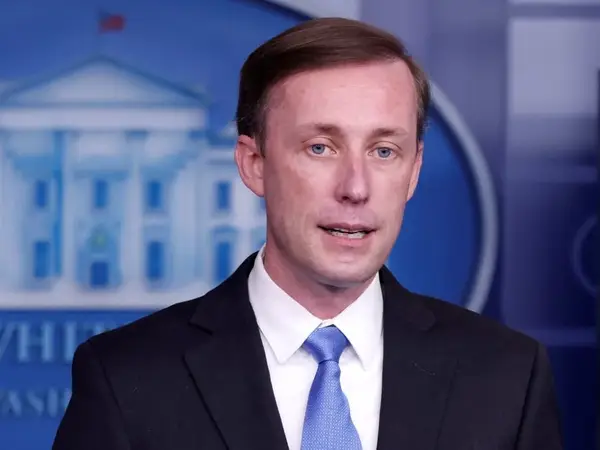US National Security Advisor Jake Sullivan outlined US priorities Thursday in advance of the G20 summit this weekend, including the issue of Iran nuclear talks.
President Joe Biden is expected to discuss with the leaders of three European allies, Chancellor Angela Merkel of Germany, President Emmanuel Macron of France and the British Prime Minister Boris Johnson the coordination of the Western position in the talks to revive the Joint Comprehensive Plan of Action, JCPOA.
“It's an opportunity to closely coordinate with our key European partners at the leader level on a joint negotiating position as we work towards a resumption of negotiations,” Sullivan told a briefing in Washington.
After four months of staying away from multi-lateral talks in Vienna, Iran announced on Wednesday that it will return to negotiation until the end of November, but Tehran delaying tactic has led to uncertainty about its real intentions.
Iran’s Foreign Minister Hossein Amir-Abdollahian said on Wednesday that Tehran expects Biden to show “goodwill” and release $10 billion of Iran’s frozen funds before talks take place.
"It's not entirely clear to me yet whether the Iranians are prepared to return to talks. We have heard positive signals that they are, but I think we have to wait and see when and whether they actually show up at the negotiating table, and we're prepared to negotiate in good faith for a return to mutual compliance with the JCPOA. We hope they are as well,” Sullivan said about how Washington perceives Iran’s moves.
Sullivan argued that the Biden Administration has much closer cooperation with its European allies than the Trump administration, which abandoned the JCPOA and imposed ‘maximum pressure’ sanctions on Tehran. The national security advisor said this is “one of the most profound divergence between the previous administration and the European.”
He went on to say, “Here you'll see Chancellor Merkel, President Macron, Prime Minister Johnson, President Biden all singing from the same song sheet on this issue."
The United States and the European powers are seriously concerned about Iran’s enrichment of uranium to a high level of purity, which has no civilian use and other knowledge Tehran’s nuclear program might gain, as negotiations are delayed.
“It's also an opportunity to level set on our understanding of Iran's progress on the nuclear program since they left the JCPOA. And obviously, we all have deep concerns about the forward progress of that program since the lid was lifted and they began to operate outside of the constraints of the JCPOA," Sullivan maintained in another indirect criticism of the Trump administration’s decision to withdraw from the agreement.
But critics of the Biden administration say that the JCPOA was a weak agreement, with restrictions that would expire in the coming years and would allow Iran to pursue a nuclear weapons program. The US is pursuing to restore a deal that has already lost its usefulness, they say.
Although the administration has condemned former president Donald Trump’s withdrawal from the JCPOA, but it has kept the sanctions in place to force Iran to negotiate.
